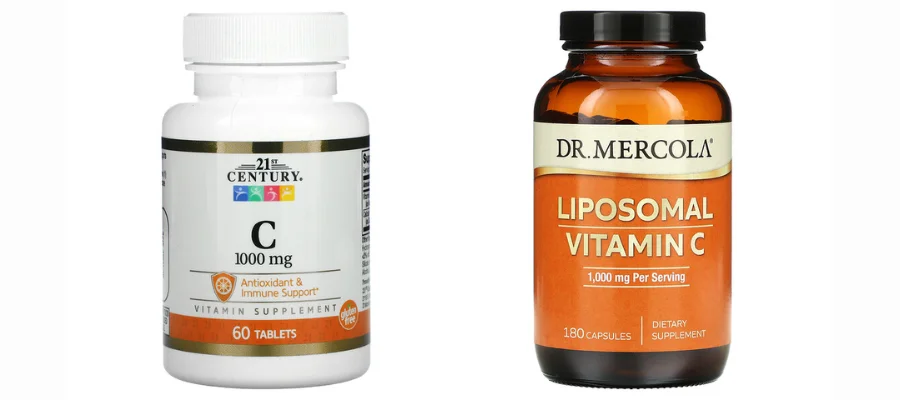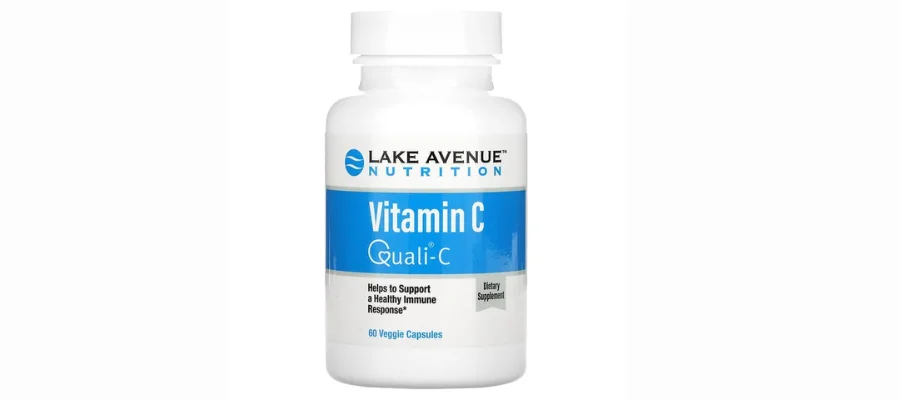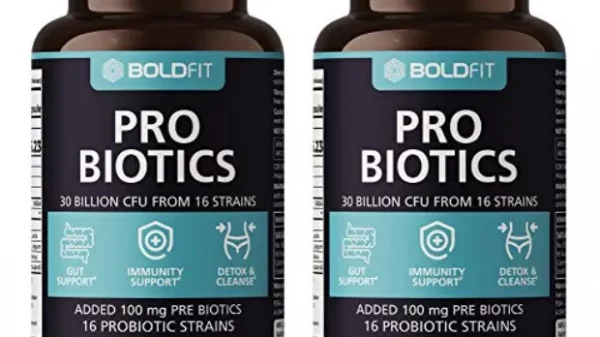
Vitamin C Supplements | Hermagic
Vitamin C is a significant nutrient for the proper functioning of the body. An intense cell reinforcement assists with shielding cells from wounds and can assist with defending the body in general.
Consuming a wide assortment of leafy foods, including citrus organic products, berries, broccoli, and tomatoes, is the most effective way for most people to secure the amount of Vitamin C they need from their eating regimen. Running against the norm, certain individuals who don’t get sufficient Vitamin C from the food they eat could profit from taking Vitamin C supplements.
Considering this, in this blog, we will assist you with understanding the importance, related advantages, and disadvantages of Vitamin C supplements available on the market.
Why is vitamin C so important for your body?
According to research, vitamin C supplements give a variety of benefits to one’s health, including the following:
1. Relieving Cold Symptoms
Taking more than 0.2 grams of vitamin C per day may lessen the severity and length of colds when compared to not taking the supplement. It is considered risk-free and economical to do so.
2. Treatment for Scurvy
A vitamin C deficit, which can lead to scurvy, can be treated by taking 1-2 grams of vitamin C each day for 2-3 days, followed by lesser doses.
3. Protection of the Heart
Vitamin C assists in the management of blood pressure, which has the potential to lower both systolic and diastolic pressure. Higher consumption is associated with a lower risk of stroke.
4. Preventing Gout
Several studies have shown that taking vitamin C supplements can help reduce uric acid levels, which in turn helps lessen the likelihood of developing gout.
5. Support for Cancer Treatment
There is some evidence that vitamin C can improve cancer treatments by inhibiting the growth of cancer cells and boosting the effectiveness of radiation and chemotherapy, particularly when it is given intravenously. During treatment for cancer, it is important to discuss any possible interactions with your healthcare professional.
Pros and cons of Vitamin C supplements
| Pros | Cons |
|
|
Top options the best vitamin C supplements available in the market
1. California Gold Nutrition, Gold C, USP Grade Vitamin C

California Gold Nutrition, Gold C, USP Grade Vitamin C | Hermagic
– California Gold Nutrition Gold C™ provides 1000 mg of USP-Grade Vitamin C.
– Supports immune health and overall wellness.
– Vegetarian-friendly, gluten-free, GMO-free, and soy-free formulation.
– Produced in a certified cGMP Registered Facility.
– Antioxidant properties help regenerate other antioxidants in the body.
– Plays a vital role in immune function for promoting well-being.
– Contains USP Grade vitamin C (ascorbic acid) in veggie capsules.
– Backed by a 100% Gold Guarantee for quality assurance.
2. 21st Century, Vitamin C
– Antioxidant & Immune Support Vitamin Supplement.
– Gluten-free formulation with guaranteed quality and laboratory testing.
– Vitamin C serves as a crucial antioxidant nutrient that enhances the immune system.
– Recommended use: Adults take one (1) tablet daily with any meal or as directed by a healthcare provider. Do not exceed the recommended dosage. Individual results may vary.
– Other ingredients include cellulose, stearic acid, and hydroxypropyl methylcellulose.
– Contains <2% of croscarmellose sodium, magnesium silicate, magnesium stearate, peg, polyvinyl alcohol, silicon dioxide, and titanium dioxide.
3. Lake Avenue Nutrition, Vitamin C, Quali-C

Lake Avenue Nutrition, Vitamin C, Quali-C | Hermagic
– Lake Avenue Nutrition Vitamin C with Quali®-C Ascorbic Acid.
– Supports a healthy immune response and essential health functions.
– Vitamin C aids immune function, acts as an antioxidant, and promotes collagen synthesis for wound healing.
– Formulated without gluten, GMOs, or soy, suitable for vegetarians.
– Quali®-C Ascorbic Acid from Scotland is known for its high quality.
– Provides approximately a 2-month supply when taken as directed.
4. Dr. Mercola, Liposomal Vitamin C
– Dietary supplement with 1,000 mg per serving.
– Supports immune health and acts as an antioxidant.
– Enhanced bioavailability for effective absorption.
– Providing quality products since 2001.
– Suggested use: Adults take two (2) capsules daily with water.
– Contains sunflower lecithin, medium-chain triglycerides, and other natural ingredients.
5. Aurora Nutrascience, Mega-Liposomal Vitamin C, Organic Fruit

Aurora Nutrascience, Mega-Liposomal Vitamin C, Organic Fruit | Hermagic
– Contains 3000 mg per serving.
– Gluten-free, non-GMO, and sugar-free.
– Comes with a dosing cup inside.
– Mega-liposomal™ Vitamin C encapsulated in all-natural lipospheres.
– Facilitates efficient nutrient absorption into the bloodstream.
– Enhanced with 100% organic fruit flavoring and natural stevia leaf extract for a pleasant taste.
– Offered by Vida lifescience®.
Conclusion
Antioxidants are among many different nutrients that are abundant in vitamin C. There is no assurance that the vitamin C benefits from your diet will make it to your skin, despite the fact that you are obtaining them.
You need to apply it topically for it to have an effect on your skin. On the market, one may find a wide variety of solutions, some of which include lotions, moisturizers, serums, and creams that include vitamin C.
On the other hand, many dermatologists believe that serum is the ideal choice for skincare since it has a lighter formulation than moisturizer and absorbs more quickly into the skin. Serum is the product that they choose to use. In addition, before going outside, make sure you wear sunscreen containing vitamin C.
Furthermore, if you want to buy Vitamin C supplements, visit the official website of iHerb. Besides, check out the official website of Hermagic for more related content.
FAQs












































































